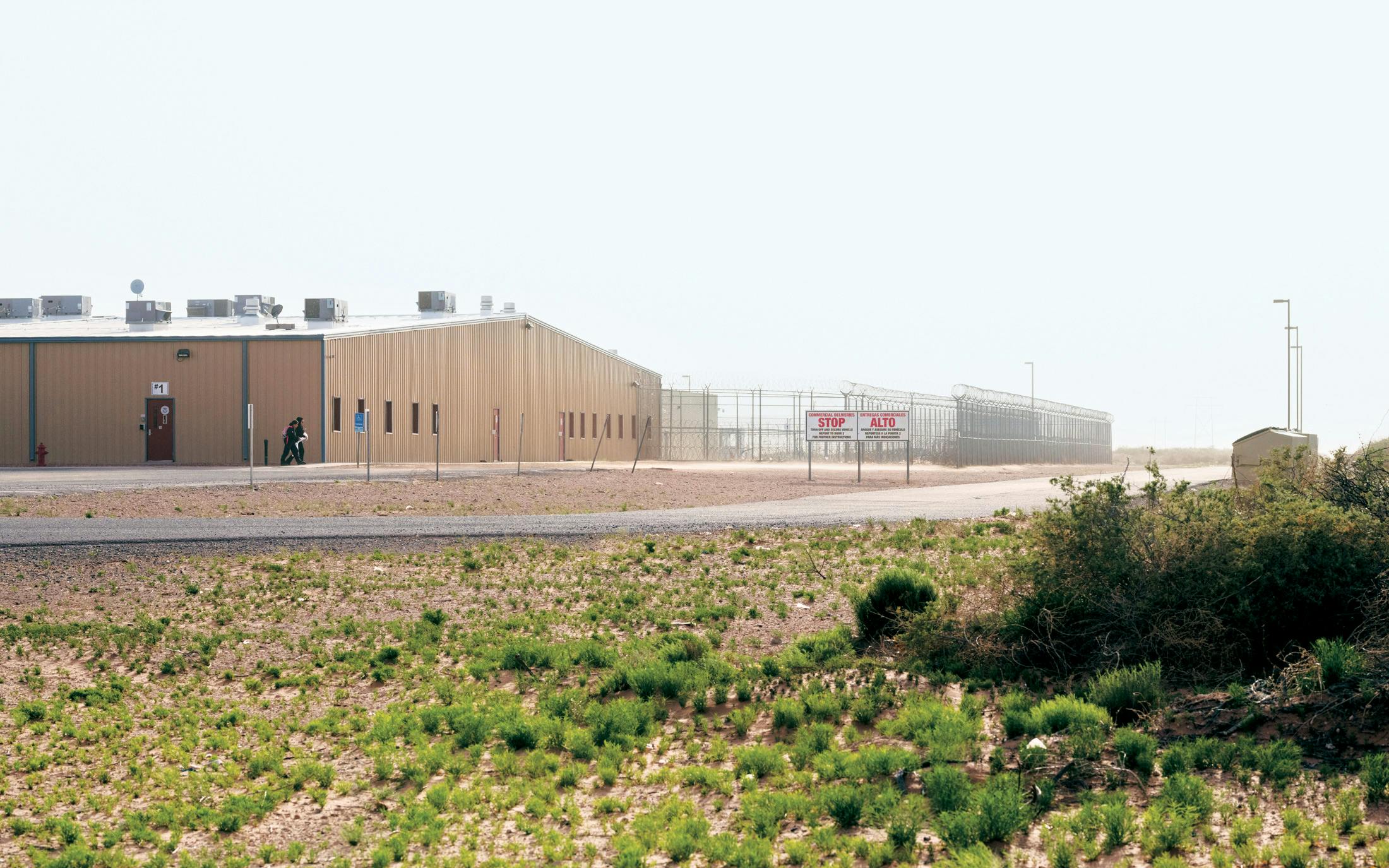Two men from India who were force-fed during a 74-day hunger strike at an El Paso immigrant detention center have been freed after more than eight months in custody. Under pressure from members of Congress, an official with Immigration and Customs Enforcement agreed on Saturday to free the men on bond, hours after they appeared to be headed to another detention facility in Washington state.
Each man was greeted by a small group of supporters in the parking lot of the Otero County Processing Center in Chaparral, New Mexico, where they had been sent over the weekend after a three-and-a-half-month stint at the El Paso facility.
“I feel freedom, sir,” said Jasvir Singh, 22, shortly after his release on Tuesday. “The first thing I have to do is take care of my body.” He came back to the Otero detention center on Wednesday for the release of Rajandeep Singh, 23, who is his second cousin. They plan to join family in California.
Along with seven other men, the Singhs launched a hunger strike in January to demand that they be freed on bond while the government heard their asylum cases. Their protest drew international attention, particularly after El Paso federal judges authorized ICE to force-feed the detainees with a feeding tube. The orders are shrouded in secrecy, including basic information such as which federal judges issued the orders and the names of the men being force-fed.
Jasvir and Rajandeep described the thrice-daily force-feeding process as painful and dehumanizing. Rajandeep was fed through a nasogastric tube through his nose and into his stomach for 29 days, Jasvir for thirteen. Jasvir said he couldn’t speak for eight days, until they placed smaller feeding tubes through his nose. “Too much pain and I can’t sleep, sir. And I cannot take a shower, sir,” Jasvir said.


The United Nations has warned that force-feeding detainees may violate the U.N. Convention Against Torture. The American Medical Association has said the practice “violates core ethical values of the medical profession.”
In a statement, an ICE spokesperson said that the agency is “committed to preserving the lives of those in its custody and maintaining orderly detention facility operations.” The spokesperson added that ICE requests a court order only after “medical professionals determine that non-consensual feeding or other treatment is medically necessary to preserve life. … Further, for their health and safety, ICE closely monitors the food and water intake of those detainees identified as being on a hunger strike. Medical staff constantly monitor detainees to evaluate whether the hunger strike poses a risk to the detainee’s life or permanent health.”
The Singhs are Sikhs, a religious minority in India. Immigration judges have ordered both men deported. The judges have not yet been asked by the Singhs’ attorneys to rule on their claims that they should be given asylum in the U.S. because they face political persecution in India.
In mid-February, ICE abruptly stopped force-feeding the nine hunger strikers after Texas Monthly reported on a limited court hearing during which the government explained a few details about what it was doing to the men. But Jasvir and Rajandeep vowed to keep fasting until they were dead if ICE wouldn’t allow them to bond out. “If I go back to India my life is in danger. If I die here it’s good for me,” Rajandeep said in a March interview at the El Paso detention center. The men only agreed to start eating again on March 16 after U.S. Representative Veronica Escobar, D-El Paso, intervened with ICE. She says she had been assured by Corey Price, a high-ranking ICE official in the El Paso sector, that he would consider granting a bond if the Singhs ate for two weeks.
“I asked him to please grant them bond, that they needed to get care, that they needed to have better access to the legal community and that they were not doing well in there,” Escobar said. “And he said, ‘Look, I can’t even consider it unless they start eating again because they’ll need to be in compliance. But if they’re in compliance, I will definitely consider it.’”

The two-week mark came on March 30, but the men still weren’t released. A week later, on April 5, five Democratic members of the House Homeland Security Committee who were in El Paso told ICE they wanted to visit the men at the El Paso detention center the next day. When the delegation arrived at the facility on Saturday, they were told Jasvir and Rajandeep had been moved the night before to the Otero detention center about 30 miles away, said Representative Nanette Barragán, D-California, one of the committee members.
The congressional delegation was not happy about the news. “There were angry members and we wanted to know where they were,” Barragán said. “And so it became an issue and they wouldn’t let us talk to anybody on site. That just made it worse. And then two hours later we got word that they were going to transfer those hunger strikers from where they had just been moved to another state.” She said the committee members told ICE officials that if necessary would travel to Washington state, where the Singhs were expected to be moved, to speak to Jasvir and Rajandeep.
Escobar was livid when she learned the men had been moved from El Paso. She felt a sense of duty to Jasvir and Rajandeep—after all, they had ended their hunger strike over ICE’s promise, negotiated by Escobar, that they would be freed. “It’s now clear to me that I was played,” she said. The El Paso congresswoman demanded an explanation from Price; when they finally talked on Saturday afternoon, he agreed to grant Jasvir and Rajandeep bonds, she said. ICE declined to respond to Escobar’s account. A spokeswoman provided a brief statement saying Price had “redetermined custody status for Jasvir Singh and Rajandeep Singh, both nationals of India.”
“It took aggressive lawyers, an aggressive member of Congress, and many other advocates to make this happen,” Escobar said. “And while I am relieved to hear that they could be released … I know there are so many thousands like them who deserve to be out on bond and have access to the same kind of advocacy they received,” she said.
- More About:
- El Paso






